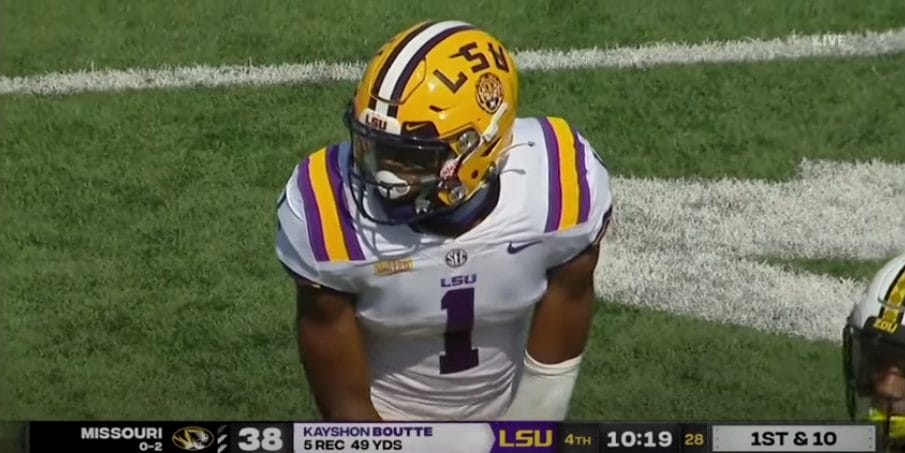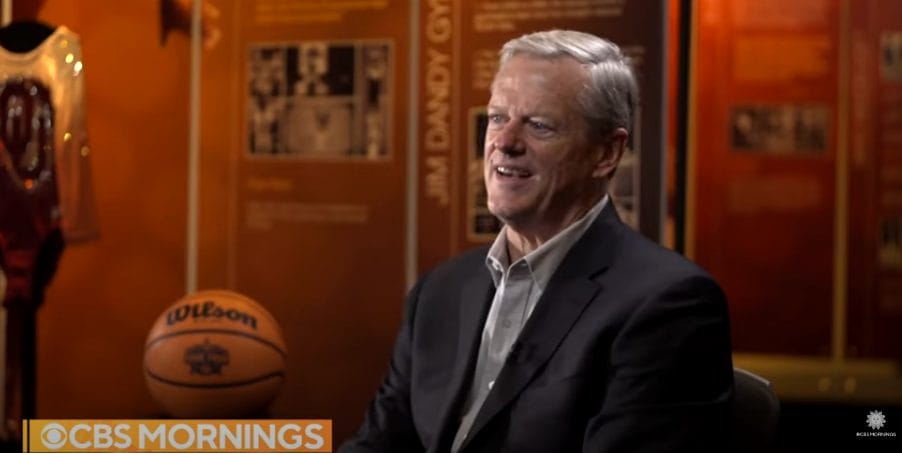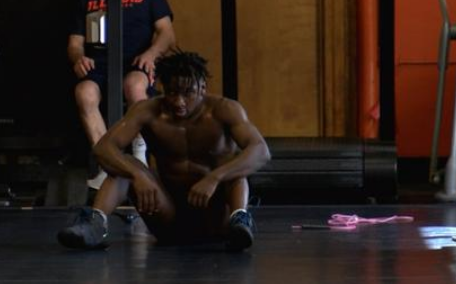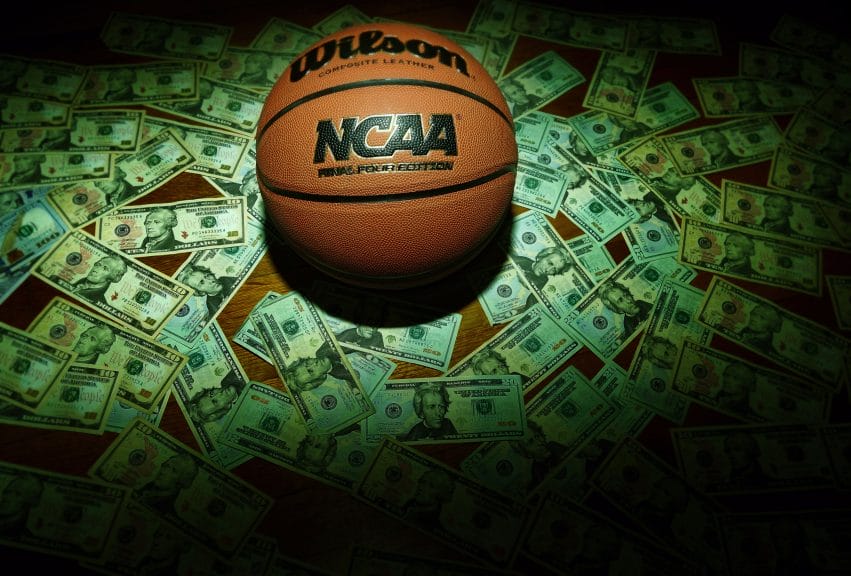Sports betting has become more accessible. College athletes are dealing with the pressure and harassment that comes with gambling. Individuals such as NCAA’s president Charlie Baker is aware of the situation. Rules are slowly changing to make sure that there is a safe playing environment for college athletes.
In the past five years, over 30 U.S. jurisdictions have legalized online sports betting. All but 5 of these 30 states also allow daily fantasy sports. This has led to pressure and harassment for college athletes as the gamblers don’t want to lose money that they cashed in on the popular betting apps.
The minimum age for legal betting is 21 years of age, the same required age to buy alcohol. It is also the required age to play for money at casinos. Some of these states have chosen 18 years of age to be the minimum legal age to log on to popular apps such as Fan Duel or Draft Kings.
A lot of people agree that making sports betting very accessible is dangerous no matter what age is playing.
According to Foley, it is easy to give in to the hype of sports gambling and become addicted. You have easy access to it on the app store on your phone. If you are a sports fan, ads follow you everywhere. When you are watching sports, watching YouTube videos, or even browsing the web, you will find ads.
You will also get tons of emails that give you just one click back to your sports betting addiction. If you’ve downloaded the app once, it will continue to show up for you making it hard to quit. We have normalized it.
Sports Betting Pressure on College Athletes
Sports betting has had an impact on college athletes as far as the pressure they deal with. For some, it’s their own gambling choices that are getting them in trouble.
According to Sportico in January 2024 New England Patriots wide receiver Kayshon Boutte was arrested for computer fraud and prohibited gaming. Prosecutors believe that in his time at LSU, he was sport-betting at the age of 20. This was illegal, as 21 years old was the age needed to participate.

Recently NCAA March Madness Division 1 Basketball Tournament garnered tons of attention for its record-breaking sports betting. According to Christianity Today, South Carolina defeated Iowa 87-75 to win the Women’s NCAA Championship on Sunday, April 7th.
This drew in record-breaking betting numbers. Bet MGM announced that the game had drawn the most bets of any women’s sporting event ever.
Last year during the NCAA Men’s March Madness college basketball tournament, betting had reached an all-time high. More than 15 billion bets were placed according to the American Gaming Association.
The ‘Prop Bet’ was one of the most common bets made during these tournaments. This bet usually bets on details of an individual’s performance like the number of an individual’s performance on rebounds for example.
American Basketball player Caitlyn Clarke just finished her college basketball career for the Iowa Hawkeyes. She is now a professional basketball player for the Indiana Fever and was the No. 1 pick in the 2024 WNBA draft. Clarke is arguably one of the greatest female collegiate players of all time. Recently Caitlyn Clarke experienced pressure from prop betting in the most recent 2024 Women’s March Madness tournament.
NCAA’s president Charlie Baker has taken note of this sports betting trend. He plans to spread awareness to those not familiar with sports betting and how the NCAA plans to ensure the safety of collegiate athletes.
Charlie Baker on Sports Betting Pressure
On March 1, 2023, Charlie Baker became the sixth NCAA president. Very early on he saw that there were issues with sports betting and the harassment and pressure that it puts on young individuals.

The NCAA president said before Monday’s men’s basketball championship game that the organization remains concerned about gambling. For The Athletic, he added that in college sports “were kind of in the top of the first inning when it comes to this one.” “Particularly when it comes to prop betting” he added.
“Did any of you take notice of the large amount of screen time on TV that talked about Caitlin Clarke’s prop performance? That took place after the first national semifinal game leading into the second game?” Baker said.
“Was that really what we should be talking about in the middle of a women’s Final Four? I think the answer for that for most people is no.”
In a statement released in March, Baker announced that the NCAA is “drawing the line.” They want to protect athletes and the honesty that should come with college sports. Prop bets allow fans to bet on a player’s performance. This is also a reason fans pressure and harass college athletes.
Road to NCAA Recovery
The NCAA has since announced a plan to enforce the changes in state laws and regulations on sports betting. This will better address the gambling problem, protect the students, and fix the issues of coercion and harassment. The end goal is to ensure the integrity of collegiate sports competitions.
There has to be clear set rules in each state on whether betting is allowed on in-state teams. States such as Illinois and Delaware haven’t allowed gambling on their in-state college teams.
Edmond Ruth, a wrestler for the University of Illinois, has not had first-hand experience with gambling or pressure from it. At the moment WWE hasn’t even reached the sportsbooks.
However, he shares his feelings on how it would make him feel as an athlete to deal with this situation.
He stated ” I guess I wouldn’t mind but if people were telling me that they betted on me, it may get on my nerves. It would get me thinking of how I perform a little bit, but if people are doing it I can’t control it. It would just get to me if people were telling me to do something in particular because they were betting on me.”

Wrestling fans not having the option to gamble has ensured the well-being of these college athletes. But this does not eliminate the potential for violations in other sports, it only mitigates the situation and partially limits the games available to players and athletes to bet on.
Rules That Could Be Enforced
The article “Kids Are Not Alright: Student athletes and the impact of legalized betting on college sports” diagrams for us a few security rules we can follow.
An Idea that can be upheld is the end of prop betting because of the harassment it causes. Baker says that individuals have come to him inquiring for this to happen. The NCAA has made a difference in four states to get rid of prop betting and others to pass harassment legislation.
States such as Washington D.C, Kentucky, New Hampshire, Rhode Island, and Wyoming could agree to change the 18 age limit to 21 like other states. Lastly, states could consider adopting penalties for anyone who harasses or coerces any student-athlete in connection with sports betting. They could also have the NCAA enforce it.
With current issues in college athletics, sports betting deserves attention from legislators and anyone else who has an interest in making a change for student-athletes and the health of gamblers.














